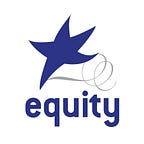GREAT EXPECTATIONS AND HOW TO MANAGE THEM
The quality of an agent-performer partnership can mean the difference between a mediocre career and a glittering one but, like any relationship, sometimes it stalls. Frank Hansen offers suggestions to help keep yours on track.
The role of an agent is not only to communicate on your behalf, but also to be your teammate, guide and, at a basic level, business partner. They will have heard you cry when you missed out on a coveted role and been there cheering your successes. Our agency has had many actors request meetings for representation and the issues they mentioned about their previous agent have largely been due to miscommunication, misunderstanding and unmet expectations.
Every client/agent relationship is different but there are issues that commonly arise. Here are ways to help navigate them.
My agent doesn’t call me often enough
Generally, your agent will contact you only to discuss opportunities. A reputable agent is constantly working for you − not hearing from them simply means they don’t have any news for you yet.
I want to be kept in the loop for every pitch, brief and potential audition
The work behind what you see is time-consuming, and informing you of every step is not viable, nor helpful for you. These days, the preferred methods of communication by most industry professionals are email, text and the various casting platforms. The advantages of written notifications are that you have the correct information in front of you and can recall it any time. I would rarely phone with audition information, unless expressly arranged, so check your email several times a day and be sure to respond asap. Only after your confirmation can we move forward.
I am doing so many auditions, why am I not booking?
Perhaps the job was meant for someone else. Maybe you were a few centimetres too tall or short for the leading role. Or perhaps you’re not as good as you think you are and there are elements to your craft that need attention. No actor, regardless of experience, is above honing their skills with continued coaching (I always suggest one-to-one coaching, rather than classes).
You may be in a flooded demographic, where the ratio of talented actors to roles being written leaves no need for auditions — every part is predetermined and offered directly. This is very common.
Your self-test setup could be at fault. A test that is technically below a certain standard won’t even get past the first line. They must always be high quality: good lighting; neutral background; clear (direct) sound; focused mid — tight-mid shot, in landscape frame. Your reader must be an actor, not your mum or partner, correctly positioned with the eyeline just to the side of the barrel.
If your self-test doesn’t hit all these marks, I recommend a retape, even if that makes it late. Sometimes an extension isn’t possible, but I would always rather have excellent work arriving late than a rushed, poor-quality test on time.
Can my agent talk to casting and ask why I didn’t get the job?
We will always do our best but mostly it’s not possible because personal feedback is time-consuming and, therefore, not a priority. The feedback will usually be general — for example, “You just weren’t right for this one but did a great job.” Casting wants you in that role, so it is in their interest that you are as good as possible and they’ll offer feedback if they can see something easily fixable that is holding you back. Unless you hear otherwise, it was just not meant to be.
My agent didn’t come to the show
Your agent signed you because they saw your potential and they believe in you. So, while you would like us to see you in every show − and we would like to be able to do that − sometimes illness, scheduling, travelling, clashing shows or simply too much work makes it impossible, so please don’t take it personally. We know you’re good — that’s why we signed you!
I have decided to move to a different agent
If it’s a gut feeling and you’ve tried everything but nothing has improved, then it might be time to part ways. But I do think there’s a loyalty crisis in the industry — actors often leave good agents, then attempt to salvage the relationship.
Air your concerns with your agent before you decide to leave. I have seen terrific colleagues, some of the best in the business, have clients leave over misunderstandings that could have been easily resolved, only to have both parties regret the decision. It has happened to me, too.
Like any other relationship, an actor-agent partnership requires work, honesty and trust on both sides. Sometimes, addressing why you want to leave helps you realise there’s something worth holding onto.
After graduating from WAAPA, Frank Hansen spent a decade acting on stage and screen before being offered opportunities on the administration side. Casting led to producing before Frank landed in talent management, where his empathy with actors, combined with his knowledge and insight into the industry as a business, laid the foundation for Hansen Management.
